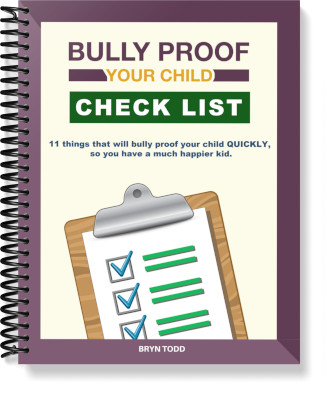
When your child refuses to go to school, it can be stressful for both of you. You might feel stressed or worried, but it’s important to know you’re not alone.
Many kids go through phases where they don’t want to go to school, and it’s a serious issue that needs understanding and attention.
Identifying the Signs
If your child refuses to go to school, it’s important to recognize the warning signs. Here are some common indicators that might suggest your child is experiencing school refusal:
● Physical Symptoms: Your child might complain of headaches, stomachaches, or other pains right when it’s time to go to school.
● Refusing to Get Ready: They may refuse to get out of bed or leave the house when it’s time to go to school.
● Emotional Outbursts: You might see them cry, scream, or throw tantrums as school time approaches.
● Begging to Stay Home: They might repeatedly beg or plead to stay home from school.
Common Causes
There can be many reasons why your child might refuse to go to school. Some of the most common causes include:
● Anxiety or Fear: They might be worried about school in general or specific situations, like giving a presentation or taking a test.
● Bullying or Social Problems: If they’re being bullied or having trouble fitting in with peers, they might dread going to school.
● Learning Difficulties: Struggling with academics can make school a stressful place for them.
● Family Problems: If there’s stress at home, it can impact their willingness to go to school.
Psychological Impact
When your child refuses to go to school, it can take a serious toll on their mental health. It might cause them to feel anxious, depressed, or even isolated from their peers. If left unaddressed, these feelings can grow and lead to more severe issues.
That’s why it’s important to address school refusal as soon as you can. By recognizing the signs and understanding why your child might not want to go to school, you can step in and offer the right support.
This way, you’re helping them navigate this tough situation and guiding them back to a place where school feels safe and enjoyable.
Strategies for Parents
When your child doesn’t want to go to school, it’s not just tough for them; it can be really stressful for you, too. But don’t worry, there are ways to help them through it.
Communication Techniques
Communication is key when your child is refusing to go to school. Start by sitting down with them and asking why they don’t want to go.
Listen to what they have to say without interrupting or dismissing their concerns. Validate their feelings by acknowledging that it’s okay to be worried or anxious.

At the same time, reach out to your child’s school. Talk to their teacher or counselor to see if they’ve noticed anything unusual.
Sometimes, they might have insights into what’s going on at school, whether it’s bullying, academic pressure, or something else causing your child’s reluctance to attend.
By communicating both with your child and their school, you can better understand the situation and work together to find solutions that make school a place they’re happy to go to each day.
More posts you may like
- Why do kids hate school?
- My child eats lunch alone
- When your child has a bad day at school but won’t talk about it
- What to say when your child is being excluded at school
- When your child says nobody likes me
Building a Supportive Environment
Building a supportive environment at home can really make a difference if your child is hesitant about going to school. Start by encouraging them to share their day with you. Ask them about the best parts and listen when they talk about what worries them.
Create a positive atmosphere at home. Praise them for their achievements, no matter how small, and encourage them to explore new things.
This can boost their self-esteem and make them feel more confident. When they feel good about themselves, they might be more open to attending school.
Your support and encouragement can help them feel valued and understood, making the idea of school less daunting. The goal is to create a space where they feel safe and loved, which can give them the strength to face their school challenges.
Establishing Routines
Establishing a routine can be incredibly helpful for children who are hesitant about going to school. Start by setting a consistent bedtime and wake-up time. Keeping the same schedule during the week helps them feel more settled and in control.
To make mornings smoother, set a routine for getting ready for school. Pack their backpack the night before, lay out their clothes, and plan a healthy breakfast. Knowing what to expect each morning can reduce anxiety and make school feel less overwhelming.
By following these simple routines, you’re helping your child feel more confident about facing the school day. With your support and a steady schedule, they can overcome their reluctance and start to enjoy school again.
Educational Alternatives
If traditional school isn’t working for your child, there are several educational alternatives you can consider. These options might offer a learning environment that fits better with their needs and interests.
Homeschooling
Homeschooling can be a great choice if you’re looking for a more hands-on approach to your child’s education.

It gives you the flexibility to design a learning plan that matches your child’s style and interests. If they struggle with certain subjects, you can adjust the pace to suit their needs.
You can also focus on topics your child is passionate about, turning learning into something they look forward to. Plus, homeschooling lets you spend quality time together, fostering a closer bond while you guide them through their studies.
With this personalized approach, you can help your child thrive and overcome any challenges they might face in a traditional classroom setting.
Online Learning
Online learning has gained popularity in recent years, providing students with an alternative to traditional classroom settings.
It allows your child to learn from home, which can be a great fit for those who are more comfortable with technology or who need to stay home due to health reasons.
With online learning, your child can work at their own pace and often has access to a wide range of subjects and resources. It’s a flexible option that can cater to different learning styles.
If your child struggles with the structure of a typical school day, this could be a way to reengage them in their education while providing a more comfortable learning environment.
Alternative Schooling Programs
Alternative schooling programs might also offer just what your child needs. Programs like Montessori and Waldorf schools focus on a unique approach to learning that could suit your child’s style.
They often emphasize hands-on learning, creativity, and personal growth, which can be perfect for kids who need something different from the typical classroom experience.
These programs can be especially helpful if your child has specific learning needs or simply thrives in a more flexible, non-traditional setting.
They focus on nurturing the whole child, not just academic skills, and can create an environment where your child feels understood and valued.
Choosing an alternative schooling program is a big decision, so make sure you do your research. Look for a program that matches your child’s interests and needs.
Professional Help and Resources
If your child is having a hard time going to school, seeking professional help can make a big difference. Here are some things you might want to consider:
Counseling and Therapy
Counseling and therapy can be a lifeline if your child is struggling with school refusal, especially if anxiety, depression, or other mental health issues are at play.
A mental health professional can sit down with your child, listen to their concerns, and help them understand what’s causing their reluctance to go to school.

Together, they’ll work on strategies to manage anxiety or fear, building the tools your child needs to feel more at ease.
Whether it’s talking through their worries, practicing relaxation techniques, or developing coping mechanisms, therapy offers a safe space for your child to navigate their feelings.
Educational Consultants
Educational consultants can be a great resource when your child is struggling with school refusal. They can guide you through the complex education system and point you toward resources that might be helpful for your child.
They can also be strong advocates, ensuring your child gets the accommodations and support they need to thrive in school.
Consultants can connect you with specialized programs, suggest alternative schooling options, or guide you toward professionals who can work with your child. Having someone who understands your situation and can offer personalized advice can be a huge relief.
Community Support Groups
Community support groups can be a lifesaver if your family is dealing with school refusal. These groups offer a safe space where you and your child can connect with others who understand what you’re going through.
It’s comforting to know you’re not alone. In these support groups, you might discover helpful resources and strategies to navigate the challenges of school refusal.
The emotional support from people who truly understand what you’re going through can make a huge difference in your journey.
Remember, reaching out for help is a sign of strength, not weakness. With the right support network, your child can work through their challenges and find success in school. You’re taking important steps to ensure their happiness and well-being.
Frequently Asked Questions:
1. What can parents do to address a child’s persistent refusal to attend school?
The first step is to talk with your child and find out what’s behind their reluctance. It might be anxiety, bullying, or having a tough time with schoolwork. Once you know the cause, you can work with your child’s school to create a plan that helps them feel more comfortable.
This plan might include counseling for emotional support, tutoring to address academic struggles, or other interventions like special accommodations in class. The key is to work together to make school feel like a safe and supportive place for your child.
2. What are some effective interventions for dealing with school refusal?
Cognitive-behavioral therapy (CBT) is a popular approach that focuses on teaching children how to cope with anxiety and stress. CBT gives them tools to manage their thoughts and emotions, which can make attending school less daunting.
Gradual exposure therapy is another technique that helps children slowly become more comfortable with going to school. This step-by-step approach eases them into the school environment, reducing the anxiety associated with it.
Family therapy can also be a great option. It brings parents and children together to explore the underlying issues contributing to school refusal.
By working as a family, you can create a supportive environment that addresses the root causes and encourages a positive attitude toward school.
3. What are the consequences for a child who consistently refuses to go to school?
Academically, they might fall behind in their studies, struggling to catch up with their classmates. This can make school feel even more daunting, creating a cycle of avoidance.
Socially, missing school means missing out on important interactions with peers. It can make it harder for your child to make friends, leading to feelings of isolation and loneliness.
These gaps in social development can affect them later on, making it challenging to transition to higher education or the workforce.
In some places, truancy laws can also come into play. If a child repeatedly skips school, there might be legal consequences for both them and you, as their parent.
4. How can parents support a young child who suddenly doesn’t want to attend school?
If your young child suddenly doesn’t want to go to school, it’s important to listen to their concerns and offer your support. Sit down with them and ask what’s bothering them about school.
It could be something like fear, anxiety, or a problem with a friend or teacher. Whatever it is, your reassurance can go a long way.
Talk to their teacher about your child’s reluctance to attend school. Teachers often have insights into what’s happening in the classroom and can help identify any issues. Work together to create a plan to address these concerns and make school a more welcoming place for your child.
Consistency helps, too. Establish a steady routine that includes a set bedtime, a regular wake-up time, and a morning routine that makes getting ready for school easier.
Positive reinforcement also makes a big difference—praise them when they go to school and celebrate small victories.
5. Who can parents contact for help when their child refuses to go to school?
You can start by reaching out to the school’s support system. Contact their school counselor, teacher, or principal to discuss your child’s behavior.
They often have resources and experience in helping kids who struggle with school refusal. They can also keep an eye on your child during school hours and provide updates on any changes they observe.
You can also seek professional help from a mental health specialist, like a child psychologist or psychiatrist, especially if your child is dealing with anxiety or other emotional issues.
These professionals can work with your child to find the root cause and develop coping strategies to help them feel more at ease about attending school.
Community organizations that specialize in supporting children and families can be another source of assistance. They often offer programs or support groups where you can connect with others going through similar challenges.
Conclusion
When your child doesn’t want to go to school, it’s a tough situation for any parent. The first step is to talk with them and find out what’s causing their reluctance. It could be anxiety, bullying, or something else.
Once you understand the problem, you can explore solutions like homeschooling, online schooling, tutoring, or therapy. Each option has its benefits and drawbacks, so choose what fits your child’s needs best.
Remember, every child is different. Be patient as you work through this, and know that with the right support, your child can overcome their fear of school and start enjoying their education again.




